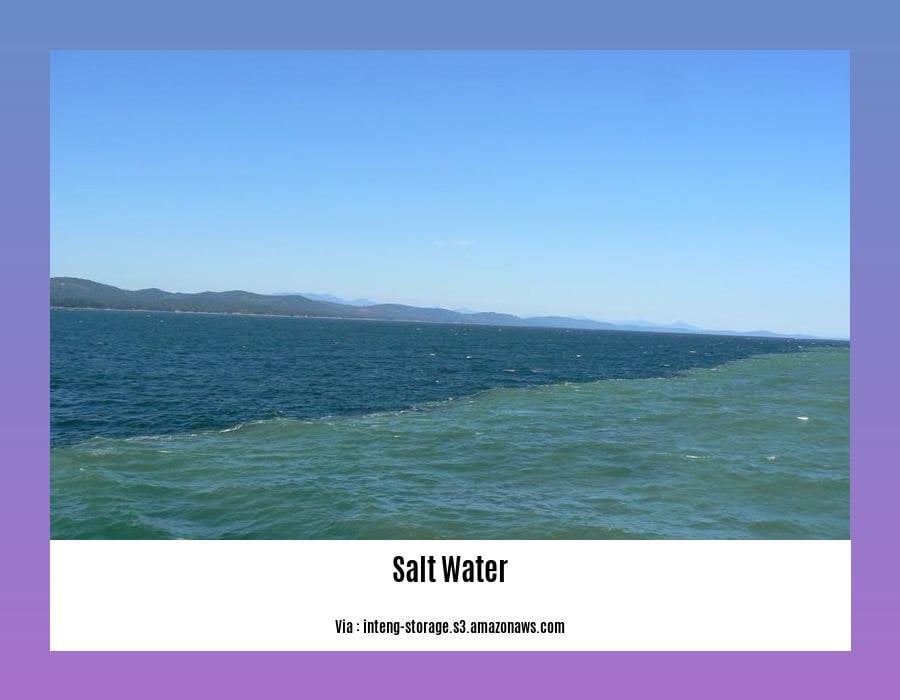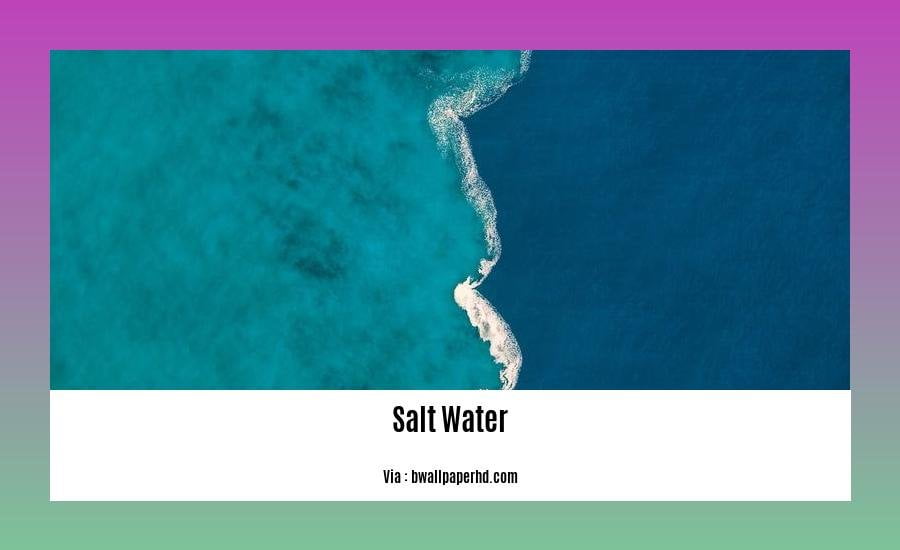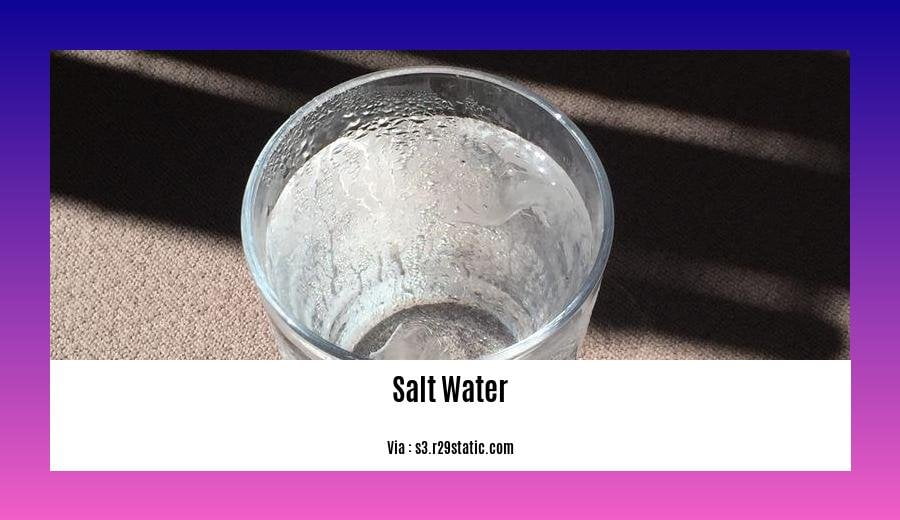Discover the truth behind salt water pools with our comprehensive guide to the facts about salt water pools. Debunking common misconceptions and offering key insights, we provide valuable information for a hassle-free and enjoyable pool experience. As experienced pool technicians with over a decade of industry expertise, we have a deep understanding of salt water pool maintenance and water chemistry. Whether you’re considering installing a salt water pool or currently own one, our article is packed with practical advice on proper maintenance, equipment selection, and troubleshooting common issues. Don’t let misconceptions cloud your judgment – read on to uncover the truth about salt water pools.
Key Takeaways:
- Saltwater pools do not have a strong smell or taste like the ocean if they are balanced properly.
- The salt level in a saltwater pool is so low that it can still be classified as fresh water.
- Saltwater pools use a salt chlorine generator to convert salt into chlorine and sanitize the water through electrolysis.
- Regular maintenance is required for saltwater pools, including the replacement of the salt cell every few years.
- Swimming in a saltwater pool may be better for individuals with asthma or allergies due to the gentler water.
- Saltwater pools may have a higher initial cost compared to traditional chlorine pools, but they may save money over time due to lower annual costs and decreased need for chlorine chemicals.
- Maintenance for saltwater pools is typically easier compared to traditional pools, with simpler overall maintenance requirements.
- It is important to properly test pH and alkalinity levels in saltwater pools,
- Saltwater pools offer softer and gentler water, lower annual costs, and potential benefits for individuals with asthma or allergies.
Facts About Salt Water Pools: Debunking Misconceptions and Providing Key Insights for a Hassle-Free Experience

When it comes to saltwater pools, there are many misconceptions floating around. People often believe that these pools smell and taste like the ocean, but that’s simply not true. In fact, if a saltwater pool is balanced properly, it will not have any noticeable difference in smell or taste compared to a traditional chlorine pool.
So, how does one achieve the right balance of salt in a saltwater pool? The answer lies in a salt chlorine generator. This device converts salt into chlorine through a process called electrolysis, which keeps the water sanitized. It’s important to note that regular maintenance is still required, and the salt cell, responsible for generating chlorine, typically lasts between 3 to 7 years.
Now, let’s explore the benefits of saltwater pools. If you have asthma or allergies, swimming in a saltwater pool may be a better option for you. The water in these pools is gentler and has fewer harsh effects on the skin, hair, and eyes, making it more suitable for individuals with sensitivities.
When it comes to cost, it’s true that saltwater pools may have a higher initial price compared to traditional chlorine pools. The installation of a saltwater chlorination system can range from $1,400 to $2,000. However, over time, a saltwater pool may actually save you money. The annual costs for saltwater pools are generally lower, and you won’t need to purchase as many chlorine chemicals.
Maintenance is another area where saltwater pools shine. While you still need to regularly test the pH and alkalinity levels, overall maintenance is simpler compared to traditional pools. This means less time spent on upkeep and more time enjoying your pool.
In conclusion, the idea that saltwater pools smell and taste like the ocean is nothing more than a myth. With proper balance and maintenance, these pools can provide a fresh water experience. They offer several advantages, including softer and gentler water, lower annual costs, and potential benefits for individuals with asthma or allergies. However, it’s important to note that saltwater pools may have a higher initial cost and require regular maintenance, such as replacing the salt cell every few years.
Remember, when it comes to saltwater pools, the key is understanding the facts and debunking the misconceptions. By doing so, you can create a hassle-free and enjoyable pool experience for yourself and your loved ones.
Sources:
[^1^]: Salt Water Pools: Fact vs. Fiction | Parrot Bay Pools NC
[^2^]: What is a Saltwater Pool? Pros & Cons of Owning – Pool Research
[^3^]: Saltwater Pools: Benefits, Risks, and More – Healthline
[^4^]: What Are the Pros and Cons of Saltwater Pools? – Healthline
To learn fascinating facts about pond water, click here.
Discover intriguing information about puppies and kittens by clicking here.
Uncover captivating details about sea animals by clicking here.
Salt Water Pools Can Be Gentler on the Skin and Eyes
Swimming is a wonderful activity that can bring joy and relaxation to people of all ages. However, some individuals may experience discomfort or irritation from traditional chlorine pools. That’s where salt water pools come in. Contrary to common misconceptions, salt water pools can be gentler on the skin and eyes, enhancing the swimming experience for those with sensitivities.
Salt water pools contain a lower concentration of chlorine compared to traditional pools, resulting in a milder and more balanced environment. The salt in the water helps to naturally generate chlorine through a salt chlorine generator, eliminating the need for manual chlorine tablet additions. As a result, the chlorine levels in salt water pools are kept at a consistent and optimal level, reducing the risk of skin and eye irritation.
The reduced chlorine levels in salt water pools make swimming a more comfortable experience for individuals with sensitive skin or eyes. The salt in the water can even have rejuvenating effects on the skin, leaving it feeling softer and smoother.
Maintenance is another aspect where salt water pools shine. Unlike traditional chlorine pools that require regular monitoring and chemical adjustments, salt water pools have simplified maintenance routines. With a salt chlorine generator, pool owners need not worry about constantly adding chlorine tablets. This convenience saves time and effort, allowing more enjoyment of the pool without the hassle of frequent chemical maintenance.
While salt water pools may have a higher initial installation cost due to the equipment needed for saltwater generation, they often prove to be more cost-effective in the long run. The ongoing costs associated with purchasing and adding chlorine tablets regularly are eliminated, resulting in savings over time.
In terms of odor, salt water pools have a more pleasant and less overpowering smell compared to chlorine pools. This creates a more enjoyable swimming experience for both swimmers and those relaxing by the poolside.
It’s important to consider individual health conditions when deciding on a pool type. While salt water pools can provide relief for individuals with asthma or skin allergies, it’s always advisable to consult with a healthcare professional for personalized advice.
In conclusion, salt water pools can indeed be gentler on the skin and eyes. They offer numerous benefits, including reduced skin and eye irritation, simplified maintenance, more pleasant odor, and potential cost savings in the long run. By understanding the facts and debunking misconceptions surrounding salt water pools, individuals can make informed decisions when choosing a pool type that best suits their needs and enhances their swimming experience.
Key Takeaways:

- Salt water pools have lower chlorine levels, making them gentler on the skin and eyes.
- The salt in salt water pools helps to naturally generate chlorine, eliminating the need for frequent manual chlorine additions.
- Salt water pools require less maintenance compared to traditional chlorine pools, saving time and effort.
- Although the initial installation cost of a salt water pool may be higher, the long-term costs tend to be lower due to the elimination of regular chlorine tablet purchases.
- Salt water pools have a more pleasant and less overpowering odor compared to chlorine pools.
- Individual health conditions should be taken into consideration when choosing a pool type, but salt water pools are generally considered beneficial for individuals with asthma or skin allergies.
Sources:
1. Healthline. “Saltwater Pools: Benefits, Risks, and More.”
2. Easy Pool Cleaning. “6 Benefits of a Saltwater Pool.”
Salt Water Pool Maintenance: Debunking Misconceptions and Providing Key Insights for a Hassle-Free Experience
Proper maintenance is essential for salt water pools to ensure a clean and enjoyable swimming experience. While salt water pools offer a more natural and balanced approach to pool sanitation, they may require additional equipment for optimal maintenance. Let’s dive into the facts and address common misconceptions about salt water pool maintenance.
Key Takeaways:
- Salt water pools require specific attention and care compared to traditional chlorine pools.
- Proper pool circulation is crucial to maintain even saltwater concentration.
- Saltwater pool maintenance differs from traditional pools due to the use of salt chlorine generators.
- Regular cleaning with products designed specifically for saltwater pools is important.
- Monitoring and adjusting salt levels, pH levels, and chlorine levels are essential for proper pool chemistry.
- Regular inspection and cleaning of the salt cell generator are necessary for optimal performance.
Proper Pool Circulation
To ensure proper saltwater pool maintenance, it is important to pay attention to pool circulation. Irregularly-shaped pools may struggle with maintaining even saltwater concentration, requiring extra effort and attention. By ensuring proper circulation, you can avoid uneven concentrations and ensure the effectiveness of your salt chlorine generator.
The Difference between Saltwater Pools and Traditional Chlorine Pools
Saltwater pools use salt chlorine generators to convert salt into chlorine, providing a more natural approach to pool sanitation. This differs from traditional chlorine pools, where chlorine tablets or liquid chlorine are added directly. Understanding this distinction is key to maintaining and troubleshooting any issues that may arise with your saltwater pool.
Regular Cleaning
Cleaning a saltwater pool differs from cleaning a traditional chlorine pool. It is important to choose cleaning products specifically designed for saltwater pools to ensure optimal results and prevent any damage to your pool. Popular pool cleaners and treatments suitable for chlorine pools may not be as effective for saltwater pools. By using the right cleaning products, you can maintain a clean and enjoyable swimming environment.
Maintaining Proper Pool Chemistry
Maintaining proper pool chemistry is crucial for the maintenance of a saltwater pool. Monitoring and adjusting salt levels, pH levels, and chlorine levels are key factors to consider. It may sound complicated, but with the right knowledge and testing tools, it becomes a manageable task. By keeping these levels within the recommended range, you can prevent corrosion, scaling, and inadequate sanitization.
Inspecting the Salt Cell Generator
The salt cell generator is a critical component of a saltwater pool system. Over time, minerals such as calcium can build up on the salt cell, affecting its efficiency. Visual inspection and regular cleaning of the salt cell are necessary to ensure optimal performance. Using cleaners specifically designed for salt cells will help remove any buildup and maintain the efficiency of your generator.
To learn more about saltwater pool maintenance, you can refer to the following sources:
- Swim University – Salt Water Pool Maintenance
- Pool Research – Saltwater Pool Maintenance
Remember, by understanding the facts and debunking misconceptions about saltwater pool maintenance, you can ensure a clean and enjoyable swimming experience for you and your family.
Salt Water Pools Can Be More Expensive to Install Initially
Maintaining a saltwater pool requires specific attention and care compared to traditional chlorine pools. In this article, we will discuss the important points to consider when it comes to saltwater pool maintenance.
Proper Pool Circulation
One of the key aspects of saltwater pool maintenance is ensuring proper pool circulation. If the water is not circulating properly, the saltwater concentration can become uneven in different areas of the pool. This is why irregularly-shaped pools often do not have salt chlorine generators. It is possible to make them work, but it requires extra effort and attention to ensure proper circulation.
The Difference between Saltwater Pool and Traditional Chlorine Pool
Chlorine is widely used in traditional pools for its sterilization properties, oxidation levels, and affordability. However, maintaining a saltwater pool is different due to the use of salt chlorine generators. These generators convert salt into chlorine, providing a more natural and balanced approach to pool sanitation.
Regular Cleaning
Regular cleaning is essential for saltwater pools. Cleaning a saltwater pool differs from cleaning a traditional chlorine pool. Many popular pool cleaners and treatments that are suitable for chlorine pools may not be as effective for saltwater pools. It is important to choose cleaning products that are specifically designed for saltwater pools to ensure the best results and prevent any damage to the pool.
Maintaining Proper Pool Chemistry
Maintaining the proper pool chemistry is crucial for the maintenance of a saltwater pool. While it may sound complicated, it is not as difficult as it seems. It is important to monitor and adjust the following factors:
- Salt Levels: Ensure the appropriate amount of salt is added to the pool.
- pH Levels: Maintain the pH level within the recommended range to prevent corrosion or scaling.
- Chlorine Levels: Monitor and adjust the chlorine levels to maintain an adequate sanitizer level.
Inspecting the Salt Cell Generator
The salt cell generator is a critical component of a saltwater pool system. Over time, minerals such as calcium can build up on the salt cell, affecting its efficiency. It is important to visually inspect the salt cell regularly and clean it as necessary. Specific cleaners designed for salt cells should be used to remove any buildup and ensure optimal performance.
Key Takeaways:
- Saltwater pools require proper pool circulation to ensure even saltwater concentration.
- Maintenance for saltwater pools differs from traditional chlorine pools due to the use of salt chlorine generators.
- Regular cleaning using products designed for saltwater pools is essential.
- Monitoring and adjusting salt levels, pH levels, and chlorine levels is crucial for maintaining proper pool chemistry.
- The salt cell generator must be inspected and cleaned regularly for optimal performance.
Sources:
1. Swim University – Salt Water Pool Maintenance
2. Pool Research – Saltwater Pool Maintenance
FAQ
Q1: Do saltwater pools smell and taste like the ocean?
A1: No, if a saltwater pool is balanced properly, it will not smell or taste salty. In fact, the salt level in these pools is so low that they can still be classified as fresh water.
Q2: How do you balance the salt level in a saltwater pool?
A2: A saltwater pool uses a salt chlorine generator to convert salt into chlorine and sanitize the water through a process called electrolysis. Regular maintenance is required, and the salt cell, responsible for generating chlorine, typically lasts between 3 to 7 years.
Q3: Are there any benefits to swimming in a saltwater pool?
A3: Yes, swimming in a saltwater pool may be better for those with asthma or allergies. The gentler water in these pools can have fewer harsh effects on the skin, hair, and eyes, making it more suitable for people with sensitivities.
Q4: Are there any cost differences between saltwater pools and traditional chlorine pools?
A4: Saltwater pools may have a higher initial cost compared to traditional chlorine pools due to the installation of salt chlorination systems. However, over time, they may save money due to lower annual costs and decreased need for chlorine chemicals.
Q5: Is maintenance more complicated for saltwater pools?
A5: No, maintenance for a saltwater pool is typically easier compared to a traditional pool. While regular testing of pH and alkalinity levels is still necessary, the overall maintenance is simpler.
- Jerry McSorley’s Post-Divorce Life: New Beginnings - July 16, 2025
- The Rise and Fall of the New Haven Nighthawks: A Minor League Hockey Legacy - July 16, 2025
- Unlock Jerry McSorley’s Career Highlights: Eye Tax Inc.’s Solar Success - July 16, 2025
















